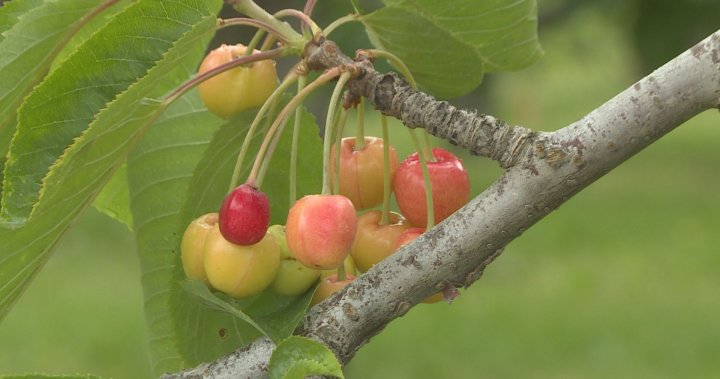
More B.C. cherries headed to South Korean market
Global News
B.C. growers and industry partners 'cannot wait to see cherries branded with the maple leaf in stores across South Korea,' Sukpaul Bal said.
More B.C. cherries will soon start appearing in South Korean markets, courtesy of the ongoing free trade deal between the two countries.
Getting B.C.’s crop of cherries better positioned in the trade deal has been in the works for years, according to the press release from the federal government.
Under the Canada-Korea Free Trade Agreement, in force since 2015, tariffs on Canadian cherries have dropped from 24 per cent to 4.8 per cent, with full elimination set for 2024.
“Increased exports into South Korea have been part of British Columbia’s long-term strategy to grow international markets for cherries, while securing the best price,” according to a government press release.
In 2021, South Korea imported over $208 million of fresh cherries from around the world.
“British Columbia’s cherry industry produces 95 per cent of Canada’s sweet cherries and has an opportunity to grow even more thanks in part to the premium new cherry varieties bred at Agriculture and Agri-Food Canada’s Research Centre in Summerland, B.C.”
With the recent expansion in acreage and production volume, along with global demand, sweet cherries have now become Canada’s second largest exported fruit crop behind blueberries.
B.C. also has the latest growing cherry crop, with some varieties only being ready to go to market by August and September. That offers a competitive advantage over all other North American markets that traditionally harvest cherries earlier in the season.













